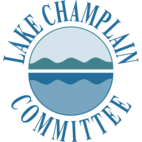Lake Ripples - March 2009
LCC E-NEWS BULLETIN
Lake Champlain Protection Programs Slated for Cuts
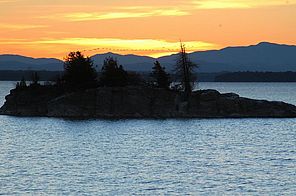
Facing phenomenal budget constraints this year, the Vermont governor and legislature have proposed drastic cuts to programs important to protecting Lake Champlain. At risk are programs that provide assistance to farmers on how to lessen their environmental impact, programs that help identify and implement on-the-ground pollution remediation projects, and programs that help monitor and track water quality. Many of these programs are matched by federal dollars thus they leverage additional monies for water quality protection. There is no doubt that the legislature faces tough budgeting decisions in the weeks to come. Contact your representative to make sure they are fully aware of the consequences of their decisions about Lake Champlain. You’ll find email and phone numbers for your legislators at the Vermont Legislative Directory or you can leave a message for them with the Vermont Sergeant at Arms at 1-800-322-5616. Feel free to contact LCC at 802 658-1414 for further details.
Champlain Canal – Your Letters Are Needed!!
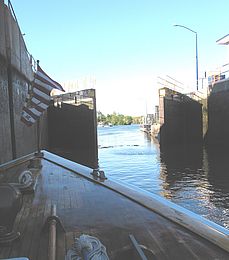
More non-native invasive species enter Lake Champlain through the Champlain Canal than from any other single source. The Canal provides a link to the Hudson River and Great Lakes system where many other species sit, poised to move into Lake Champlain. Invasive species threaten recreational activities on the lake and jeopardize native fish and wildlife. Once new species become established, there is little that can be done to manage them so it is extremely important to stop them before they reach the lake.
Recently, the New York State Canal Corporation, the entity charged with managing the Champlain Canal, has asked for an investigation into possible invasive species dispersal barriers in the canal. The U.S. Army Corps of Engineers is willing and able to undertake such a study. However, federal funding must first be secured.
Please contact New York Senators Kirsten Gillibrand (kirsten_gillibrand@gillibrand.senate.gov) and Charles Schumer (http://schumer.senate.gov/new_website/contact.cfm) and ask them to support funding for the Army Corps to study dispersal barriers to invasive species as requested by the Canal Corporation along with other options. Preventing invasive species from reaching Lake Champlain is crucial to protecting the lake’s resources.
Spring Cleaning
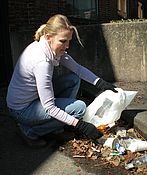
As the pure white snows of winter turn to the grungy left over roadside piles of spring a winter’s worth of detritus is revealed including dog droppings, sodden newspapers, and blown rubbish. Instead of just side stepping the mess, take a moment to clean-up some of the wayward waste before it gets washed away into our rivers and lakes with April showers. Bring a bag and some gloves along on your spring walks.
Spring Natural History Note - Lake Levels
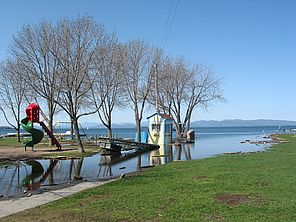
Snowmelt-filled rivers and streams lead to rising lake levels this time of year. Additionally, plants can’t readily absorb any rain that falls before the flowers blossom and trees leaf-out so it moves fairly rapidly to the streams. On average, the lake’s level climbs almost three feet between the beginning of March and early May, peaking at about 99 feet above sea level. As of March 26, 2009 the lake stood near 97.5 feet.
Vote “Earth” on Saturday, March 28 from 8:30 – 9:30 pm
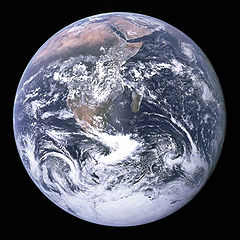
This Saturday, residents across the globe will observe Earth Hour by turning off the lights for one hour to be part of a global statement of concern about climate change. The Eiffel Tower will be dark along with the Sydney Opera House and many other worldwide landmarks. Extinguish your lights from 8:30 to 9:30 pm and join with cities, villages, businesses and citizens around the world in demonstrating a collective commitment to work for solutions to global warming. An estimated 50 million people “turned out the lights” in 2008 and this year’s organizers are hoping that 1 billion people will participate. Learn more about the event at http://www.earthhour.org.
Artists Get Wet: Lake Champlain in Paints and Words
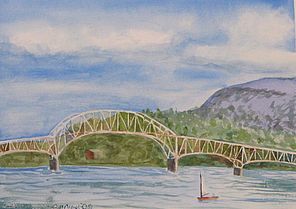
Thursday, April 2, 2009
6:30 - 8:00 PM
Phoenix Books & Cafe, Essex, VT
Lake art, literature and natural history will be served up with light refreshments at Phoenix Books and Café in Essex, Vermont on Thursday, April 2nd from 6:30 – 8:00 pm. The event is co-sponsored by the Lake Champlain Committee (LCC), the Essex Art League, and Phoenix Books and Café in celebration of the Quadricentennial of Samuel de Champlain’s arrival on the lake. Over 20 area artists will exhibit their diverse visions of Lake Champlain. The program will also include a natural history discussion and poetry reading. LCC author and staff scientist Mike Winslow will draw from the LCC’s new book Lake Champlain: A Natural History and address the forces, phenomena, flora and fauna that help make the lake such an endearing fixture in our regional consciousness. Poet Daniel Lusk will present some of his poetry about Lake Champlain. All artwork will be for sale. The Artists Get Wet event is free and open to the public. Join in for a few minutes or the entire evening.
Unable to attend? You can add to your lake knowledge by getting a copy of "Lake Champlain: A Natural History" from our secure online store. The 160-page publication covers the lake's geology, geography, biology and ecology in an accessible, engaging style. If you'd like to schedule a presentation about the lake for your community, please contact us at lcc@lakechamplaincommittee.org.
Medicine Collection Day<br> Saturday, April 4 from 9 am to 6 pm
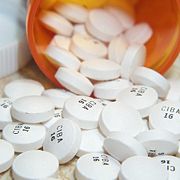
Looking for a safe, environmentally benign way to dispose of the unused or expired medications collecting in your medicine cabinet? You can drop them off at the Kinney Drugs store at 308 Shelburne Road in Burlington, Vermont on Saturday April 4. Another collection day will be held in the Plattsburgh, New York area later in the year. All drop off materials will be sorted by pharmacists and then either properly destroyed by law enforcement agents or disposed of at a federally licensed facility. By dropping off pharmaceuticals at a Medicine Collection Day you can help prevent accidental poisonings, substance abuse and environmental pollution. The event is free and open to the public.
The proper disposal of medications has increasingly become an issue of environmental and safety concern across the United States. According to a study conducted by the Substance Abuse and Mental Health Services Administration (SAMHSA), 70 to 80 percent of substance abusers said they took medications that belonged to a friend or relative. In addition, pharmaceuticals have been found in the drinking water of at least 41 million Americans, according to a March 2008 Associated Press investigation.
Narcotics prescriptions and other prescription and over-the-counter medicines, ointments, sprays, inhalers, creams, medication vials and pet medications will be accepted at the Medicine Collection Day. Not accepted are illegal drugs, biohazardous materials, needles, personal care products and household hazardous wastes like paint or pesticides.
Medication brought to the drop-off must remain in the original bottle or package with the name of the product clearly visible. However, personal names and addresses may be removed or blocked out. Medicine Collection Day will be held from 9 a.m. until 6 p.m. at the Kinney Drugs location on Shelburne Road. The event is free and open to the public.
Lake Look – International Joint Commission
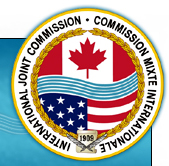
One hundred years ago, the world’s first international environmental agreement was signed between the United States and Canada – the Boundary Waters Treaty of 1909. This agreement created a body, the International Joint Commission (IJC) to mediate disputes over waters that crossed between the two countries. At the time, water diversion projects in North Dakota and Alberta along the St. Mary’s and Milk Rivers were creating tensions. There was also debate about potential hydroelectric generation along the Niagara River, shared by New York and Ontario. Most of the IJC’s work revolves around the Great Lakes. However, since Lake Champlain shares a border between Quebec and both New York and Vermont, it too is under the jurisdiction of the IJC. In their century long history the IJC has been called on to address Lake Champlain issues at least four times. MORE
Way to Go Week – May 4 -8
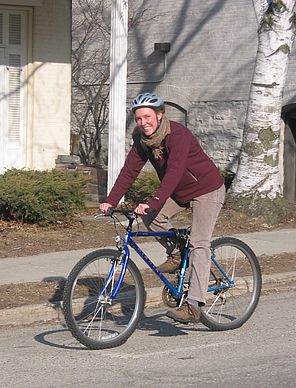
Help us reduce 500,000 pounds of greenhouse gases in just one week! Way to Go Week is an annual program promoting the use of cheaper, healthier, more earth-friendly alternatives to driving alone. You can help make a difference in our air and water quality by walking, biking, carpooling, telecommuting or taking the bus. Do it for one day, a few days or the whole week. Sign up online at www.waytogovt.org. The website contains lots of useful information on reducing the environmental impact of driving. LCC Office Manager Jeanne Stark is one of the "commuter idols" highlighted on the website for getting around in a low-impact way.
Whether you live in the Lake Champlain Basin year- round or just visit here occasionally, we hope you'll join in the event. You can register online and get your pollution, gas and money savings calculated, receive free giveaways and be entered in a drawing for premier prizes including Ipod Nanos, Burton snowboards, battery-powered mowers, bus passes, and gift certificates!
To learn the fuel efficiency rating, energy impact and carbon footprint for the vehicle you drive, check out http://www.fueleconomy.gov/feg/sbs.htm
Your Dollars Make A Difference
LCC’s mission to protect Lake Champlain’s health and accessibility requires nearly $300,000 in donations each year. We are deeply grateful for whatever financial contribution you can make towards our ongoing lake stewardship. You can join or renew your membership online at our secure website. Your support truly make a difference. Please consider making a tax deductible gift today!
LCC Links
- Join/Donate
- Upcoming Events
